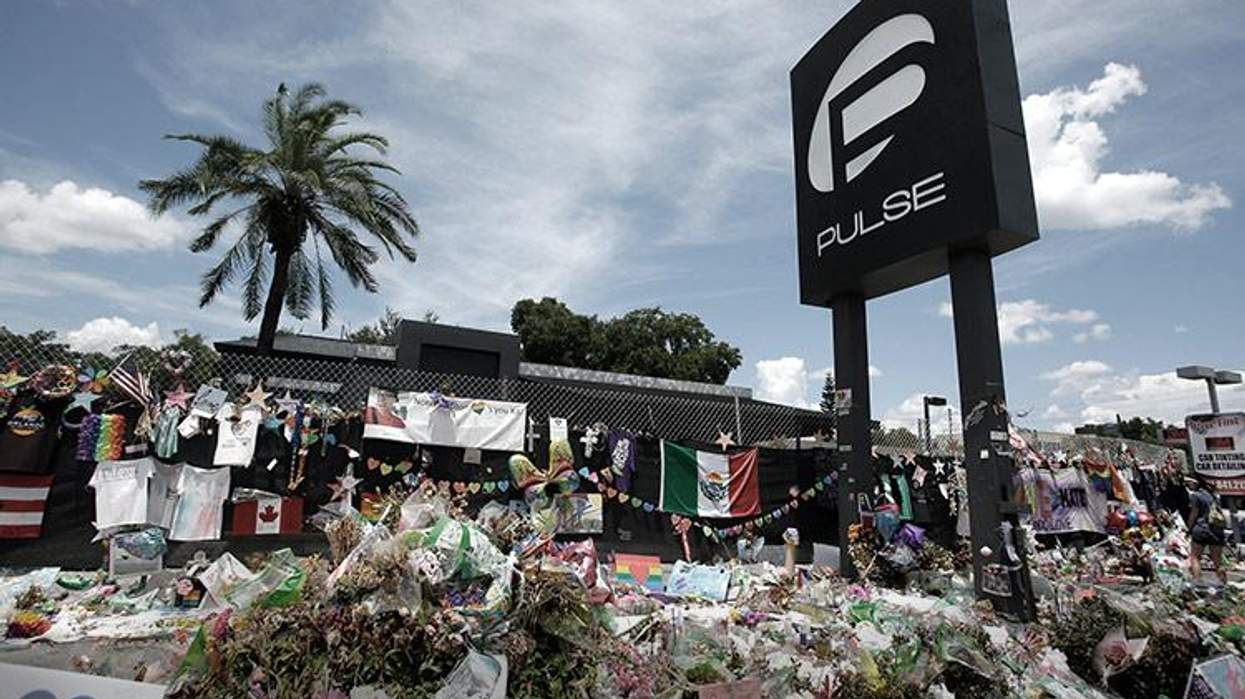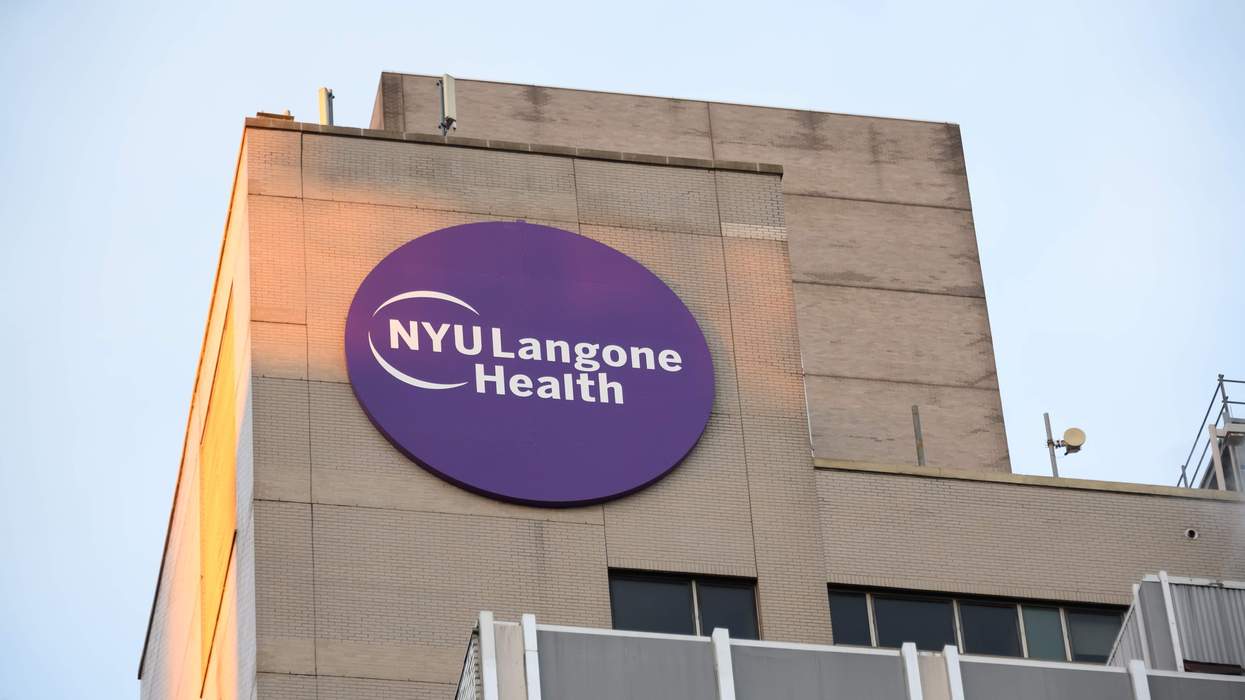The June mass shooting at a nightclub in Orlando that stole the lives of 49 people, most of whom were Latino, underscores just how vulnerable we LGBTQ people are -- and continue to be -- despite legal and social advances. It is a wake-up call, as urgent as the call for justice launched at Stonewall in 1969. Stonewall was a tipping point for us in the LGBTQ community and helped launch the modern gay rights movement. We have made historic progress in the 47 years since, such as the right to marry and serve openly in the military, and many states now assuring protections from discrimination in employment or housing.
While Orlando reminds us that some hearts and minds are resistant to change, it also is a stark reminder of just how resilient LGBTQ people are. We've stepped out from the shadows and together recommitted ourselves to fighting for our fundamental rights and fighting for our health -- and in some ways we are still fighting for our lives.
There are many questions left to be answered about the Orlando shooting, and perhaps some answers will never be found. One theory is that the shooter was motivated by fear of HIV combined with his repressed sexuality. Whether this is true or not, what we do know is that our community has yet to effectively combat the stigma related to HIV, and we still have much to do to fight the epidemic itself.
Thirty-five years ago this summer, the first cases of what would later be known as HIV and AIDS were identified. And while science has made great progress understanding and treating the disease, we LGBTQ people must face the stark reality that the epidemic continues to grow among our population like no other, especially among transgender women and gay and bisexual men.
The sad truth is our knowledge of HIV is stuck in the 1980's even though we have 21st-century solutions and biomedical advances. According to a 2014 Kaiser survey, most gay and bisexual men are not aware of current HIV treatment recommendations or that men who have sex with men in this country continue to experience startling increases in new HIV infections. The majority did not know that a virally suppressed person with HIV has a greater than 96 percent chance of never transmitting the virus to someone else, something we call treatment as prevention. Moreover, eight in 10 gay and bisexual men surveyed had heard little or nothing about pre-exposure prophylaxis (PrEP), the use of preventive medication by HIV-negative people that can lower their risk of contracting the virus to nearly zero. Most surprisingly, three-quarters said they rarely or have never discussed HIV with friends or even sexual partners. Never? How can this be true after 35 years of HIV affecting our people!
In 2014, 70 percent of the 44,784 new HIV infections in the United States occurred among gay, bisexual, and other men who have sex with men, according to the Centers for Disease Control and Prevention. In some major cities, CDC-funded research estimates that as many as 20 percent of all men who have sex with men are now HIV-positive. And the chance of a young black man who has sex with other men becoming HIV-positive in his lifetime is close to one in two. The CDC estimates the rate of HIV infection among transgender women to be as high as 22 percent to 28 percent in general, and as high as 56 percent among black trans women. These are our people. We need to fight for our lives.
Most of the victims of the Orlando tragedy were Latino: HIV rates in the Latino population are still about three times greater than among whites. Latinos account for almost 25 percent of all new diagnoses -- and eight in 10 new HIV diagnoses among Latinos occur in gay and bisexual men and other men who have sex with men. Less than half of Latinos with HIV are receiving medicines to treat their infection. And Latino people in same-sex relationships are some of the least likely to be covered by health insurance.
Progress doesn't come easy. There are always obstacles, from the smallness of bigots to the fear of change. We can point out how other people hold us back, but we can't neglect our own responsibility to do everything we can to propel ourselves -- and others in our community -- forward. We have the knowledge and tools to finally end HIV, yet new cases continue to proliferate. We not only have the tools to turn the tide of this epidemic, but a moral obligation to do so.
If you are living in comfort or privilege, we challenge you to think back on the struggles of our past and those yet to come. We can be married in all states but can still be fired from our jobs in too many states just for being who we are. And only 30 percent of Americans living with HIV have achieved viral suppression. We have so much work left to do.
We can achieve equal rights and a healthier community by stepping beyond the bounds of our personal comfort zones. Because in the end, we all want the same thing: a healthier and stronger LGBTQ community. Our Stonewall forebears took action. We can take action today. Take the opportunity -- even just a moment -- to talk about HIV. Commit yourself to knowing your HIV status. If you care about our people, break down stigma by talking about HIV to your friends, family, and partners. If you are HIV-positive, start treatment; if HIV-negative, use all tools possible to stay negative and encourage those around you to do the same. Learn more about how to get involved at www.cdc.gov/actagainstaids.
What difference will you make for our people?
Jesse Milan Jr., JD, is interim president and CEO of AIDS United. Rea Carey is the executive director of the National LGBTQ Task Force.















Charlie Kirk DID say stoning gay people was the 'perfect law' — and these other heinous quotes
These are some of his worst comments about LGBTQ+ people made by Charlie Kirk.